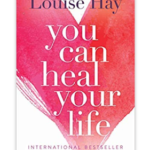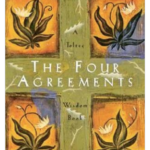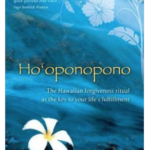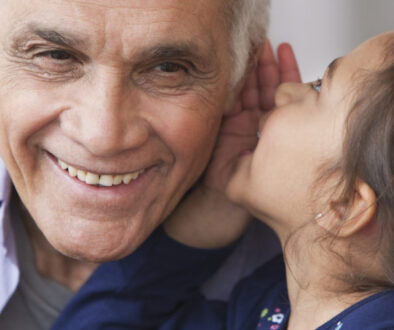Finding freedom in forgiveness
“Forgiveness is the fragrance that the violet sheds on the heel that has crushed it.”
– Mark Twain
Have you ever been hurt by another person that you find it almost impossible to let go of the anger and resentment?
Almost everyone has felt the pain inflicted by another person, whether directly or indirectly.
You may have been hurt by an old flame or feel resentment towards your parents.
You may feel insulted by someone’s criticism or embarrassed by your boss’ public ‘chewing out.’
Whatever it is that has been ‘done to you,’ it often ends up on one of two roads:
- the road of revenge and unresolved anger that builds up within you like a seething volcano, or
- the road of forgiveness that empowers you to free yourself from the past.
What is Forgiveness?
Forgiveness is a conscious act of compassion and letting go of any ill feelings towards yourself or others due to a perceived injustice or hurt caused.
True forgiveness can only come from an empowered state – not affording someone to have ongoing power over you and not holding yourself victim to self-judgment.
As human beings we do make mistakes based on our unconscious awareness. There is no avoiding it.
If someone bad mouths, backstabs, lies, cheats, misleads, sets up, criticises, humiliates, manipulates, abuses their authority, breaks trust and maybe even violates you, they are highly likely disempowered and disconnected from the truth of who they are.
A person who loves, respects and accepts themselves; stands in their power with healthy boundaries; holds themselves in high-esteem and self-worth; and knows how to express their needs and authentically make requests, has no need or desire – conscious or unconscious – to wrong others.
That being said, how many people do you know who live their lives from this place in every moment – probably none, right?

However, yours or the person’s subsequent behaviour will significantly affect the trust you feel toward one another.
Keeping it in perspective
Forgiveness is in no way condoning hurtful behaviour. Rather, it is acknowledging our human limitations or frailties and making a conscious choice to choose love and peace from a place of esteem, worth and personal power.
That applies to us as well. Just because you do or say something that hurts another doesn’t automatically make you a ‘bad’ person.
It’s also important to remember that other people’s words and behaviour don’t define you. It’s only due to our own limiting beliefs that we identify with the perceived injustice or slight.
For example, if someone stands you up on a date, do you feel shame and embarrassment due to a lack of self-worth and project anger and judgment? Or, do you wait until you speak to the person to decide whether they’re someone you continue to spend time with based on love and self-respect?
Forgiveness is an opportunity to really understand one another, achieve a sense of acceptance, and perhaps even form a deeper connection.
Benefits of forgiveness
The act of forgiveness has numerous benefits, both psychological and physical. On the psychological aspect:
- Forgiveness can help boost self-esteem.
- Those who have learned to forgive people who’ve hurt them also experience less anxiety, fewer symptoms of post-traumatic stress disorder, and a lowered risk of depression.
- Forgiveness can also lead to better relationships with others, especially when your ability to forgive is forged by increased understanding, empathy and compassion.
The lightness that you feel in your heart when you forgive can also manifest in your body:
- You may experience lower stress levels due to a reduction in the stress hormone cortisol.
- This may be related to another study wherein the ability to forgive is related to lowered pain levels, since stress and physical pain can often manifest at the same time.
- By letting go of grudges, your heart rate and blood pressure can decrease.
- Lastly, another study on forgiveness showed that people who have a more forgiving nature tend to live longer.
3 Exercises to help you find forgiveness
It’s very easy to say that you need to forgive someone, but that can be a lot harder to actually do in practice. Below I’ve provided three tools to help you effectively release anger and resentment and find freedom in forgiveness.
1. Louise Hay’s mirror work
Louise Hay, the author of the international bestseller You Can Heal Your Life, has created an exercise for forgiveness.

With as much emotion and sincerity as you can muster, say these affirmations of self-love and forgiveness in front of a mirror:
- I refuse to limit myself. I am always willing to take the next step.
- They were doing the best they could with the knowledge, understanding, and awareness that they had at the time
OR
I was doing the best I could with the knowledge, understanding, and awareness that I had at the time. - I am grown up now, and I take loving care of my inner child.
- There is no right or wrong. I move beyond my judgment.
- I give myself permission to let go.
2. Don Miguel Ruiz’ 3 steps
Don Miguel Ruiz, the author of The Four Agreements, has also created a process for forgiveness.
- According to Don, the greatest motivator and the first step to forgiveness is the willingness to forgive. It has to be a genuine willingness because otherwise forgiveness will not happen.
- Next, you need to be ready to forgive. You may have the will, but if you’re not mentally and emotionally prepared to release all the hostility, anger, and resentment, then you must wait until you feel you are ready.If you feel you’re not ready to forgive, ask yourself: What do I get out of holding onto this resentment?
The answers might surprise you. This is what we call a secondary gain. - When you’ve reconnected with your self-love and personal power and are ready to let it go, the next step is to accept that what happened is in the past, that there’s no turning back, and consciously choose to move forward and create a new outlook.
When you forgive, you’re no longer carrying the energy (anger, bitterness, resentment, pain, hurt) that would ultimately damage your health and wellbeing.
3. Hawaiian forgiveness prayer
The Ho’ponopono prayer is also a wonderful transformative tool to help you forgive yourself and others. The Hawaiian word ho’oponopono comes from ho’o (‘to make’) and pono (‘right’). The repetition of the word pono means ‘doubly right’ or being right with both self and others. 
The four parts of the prayer are:
- I love you.
- I’m sorry.
- Please forgive me.
- Thank you.
Repeat the prayer over and over until you start to truly feel the words.
Even just sending the prayer with intention to the person you may have wronged will likely cause a positive shift in the relationship.
Moving forward
You may need to work through deeper emotional and self-worth issues if you’re someone who feels hurt a lot in general or find it hard to forgive.
Don’t let yourself be held back by a painful experience or a series of small slights. Other people’s words and actions do not define who you are. Compassion towards yourself and others is the key to forgiveness.
And remember: “Holding onto anger is like drinking poison and expecting the other person to die.” – AA
You may also be interested in these articles:
Forgiveness: Letting Go of Grudges and Bitterness
Give Yourself Permission to Forgive
The Power of Forgiveness: Why Revenge Doesn’t Work
(Please trust that I appreciate that murder, rape, accidental death of a child and other traumatic events will be better suited to a forgiveness process facilitated by a professional healthcare practitioner. Please do seek help. Sally Anderson’s book: Freefall: Living Beyond the Edge may be very helpful as she reveals how she was able to forgive a heinous ordeal. )





